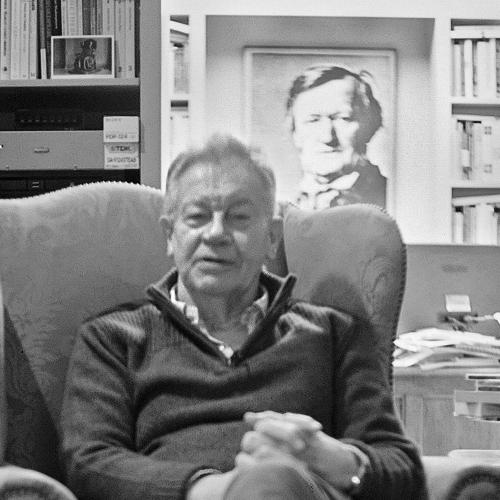COMPOSERS: Wagner
LABELS: Opus Arte
ALBUM TITLE: Tannhäuser
WORKS: Tannhäuser
PERFORMER: Kwangchul Youn, Torsten Kerl, Markus Eiche, Lothar Odinius, Thomas Jesatko, Stefan Heibach, Rainer Zaun, Camilla Nylund; Bayreuth Festival Chorus & Orchestra/Axel Kober; dir. Sebastian Baumgarten (Bayreuth, 2014)
CATALOGUE NO: DVD: OA 1177 D; Blu-ray: 0ABD 7171 D
The average length of a performance of Tannhäuser is about three and a quarter hours. This production – which opened in 2011, prematurely retired since – is about an hour longer than that (though the jacket says 132 minutes). It’s a quarter of an hour after the curtain goes up before we hear the overture, and action continues after the end of Act I and before Act II, and so on.
Director Sebastian Baumgarten wanted a bridge built from the stage to the auditorium, but since the Festspielhaus is a listed building he wasn’t allowed that, so many spectators sit on the stage. He and the radical designer Joep van Lieshout want to banish the distinction between art and life, and one way they do that is to ignore completely the subject of the opera and show, in the incredibly elaborate staging, how human excrement, shown in vivid close-up, is recycled into food and alcohol: the latter is all-important, to make sure the repressed workers don’t rebel. The Shepherd Boy, for instance, make several unscheduled appearances, utterly drunk.
What has this to do with the subject of Tannhäuser? Nothing whatever, and to be fair Baumgarten and his crew don’t pretend that it does. They are more interested in other subjects. So the conflict between carnality and spirituality which is, admittedly imperfectly, what Wagner intended this work to be about, disappears. Far from being a seductress, Venus is a mother-to-be in the opening scene, and actually gives birth at the end. Elisabeth, Tannhäuser’s saviour, is despatched in a gas chamber.
If you turn off the vision and just listen you will, apart from the lengthy periods of non-musical activity, hear a decent but not remarkable traversal of Wagner’s score. Michael Tanner
